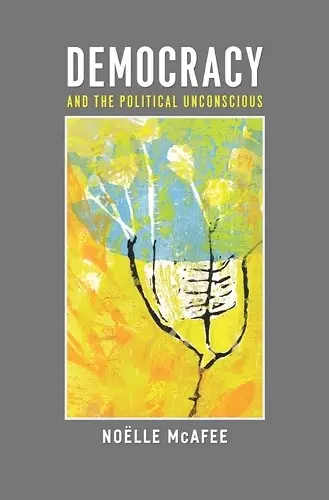Democracy and the Political Unconscious
Format:Hardback
Publisher:Columbia University Press
Published:6th May '08
Currently unavailable, and unfortunately no date known when it will be back

This book's cross- and interdisciplinary features raise the bar for democracy and make it a hell of a read. I'm on comfortable ground one moment and then find myself in comparatively unfamiliar territory the next. Noelle McAfee unpacks our collective lives as we live them and charts a more hopeful way forward. -- Alison Kadlec, Public Agenda Foundation Drawing on the theoretical frameworks of psychoanalysis, semiotics, and critical theory, Noelle McAfee illuminates some of the most pressing and difficult questions confronting democratic societies today. In a realistic yet hopeful manner, her book shows how these resources can be deployed to reconstruct public spheres. -- Vincent Colapietro, Liberal Arts Research Professor of Philosophy, Penn State University In her forcefully written book, Democracy and the Political Unconscious, Noelle McAfee raises the stakes of political theory--not only bodies and resources, but the very souls or psyches of people hang in the balance. Always informed by concrete events, McAfee's provocative thesis that public discourse can become a form of 'talking cure' explodes psychoanalysis onto the scene of democratic theory in startling and promising ways. -- Kelly Oliver, W. Alton Jones Professor of Philosophy, Vanderbilt University
Proposing a political theory for a post-9/11 world, this title addresses the root causes of our seemingly endless war on terror and considers the "talking cures" of testimony, such as South Africa's Truth and Reconciliation Commission and other public deliberations that have helped societies work through, rather than act out, their conflicts.Political philosopher Noelle McAfee proposes a powerful new political theory for our post-9/11 world, in which an old pathology-the repetition compulsion-has manifested itself in a seemingly endless war on terror. McAfee argues that the quintessentially human desire to participate in a world with others is the key to understanding the public sphere and to creating a more democratic society, a world that all members can have a hand in shaping. But when some are effectively denied this participation, whether through trauma or terror, instead of democratic politics, there arises a political unconscious, an effect of desires unarticulated, failures to sublimate, voices kept silent, and repression reenacted. Not only is this condition undemocratic and unjust, it may lead to further trauma. Unless its troubles are worked through, a political community risks continual repetition and even self-destruction. McAfee deftly weaves together her experience as an observer of democratic life with an array of intellectual schemas, from poststructural psychoanalysis to Rawlsian and Habermasian democratic theories, as well as semiotics, civic republicanism, and American pragmatism. She begins with an analysis of the traumatic effects of silencing members of a political community. Then she explores the potential of deliberative dialogue and other "talking cures" and public testimonies, such as the South African Truth and Reconciliation Commission, to help societies work through, rather than continually act out, their conflicts. Democracy and the Political Unconscious is rich in theoretical insights, but it is also grounded in the practical problems of those who are trying to process the traumas of oppression, terror, and brutality and create more decent and democratic societies. Drawing on a breathtaking range of theoretical frameworks and empirical observations, Democracy and the Political Unconscious charts a course for democratic transformation in a world sorely lacking in democratic practice.
unique contribution to the ongoing political turn to psychoanalysis. -- James Manos PhiloSOPHIA
ISBN: 9780231138802
Dimensions: unknown
Weight: unknown
256 pages